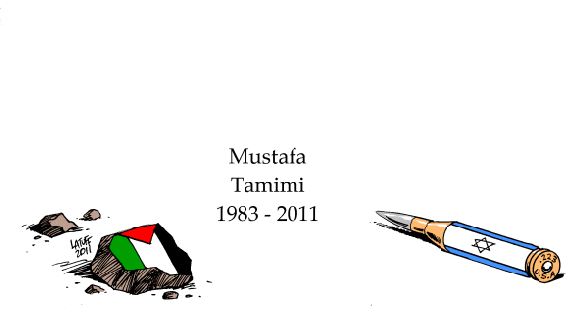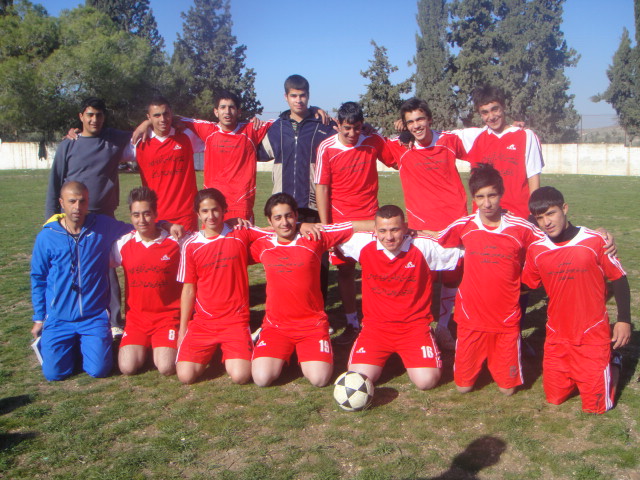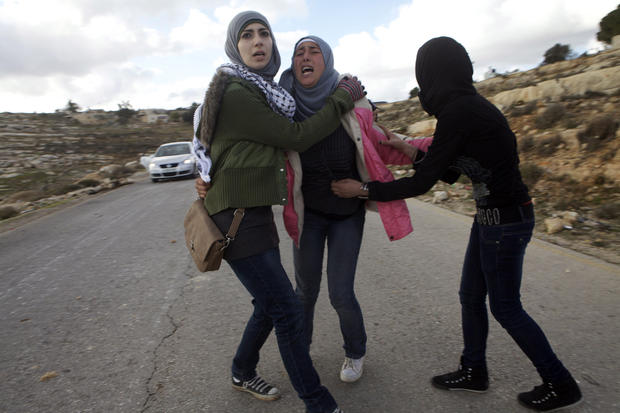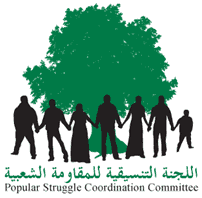Tag: Settlers
-

I was Mustafa Tamimi
by Refaat Alareer 12 December 2011 | In Gaza, My Gaza! Fifteen years ago I was Mustafa Tamimi. Two months before that it was a relative who had his skull smashed by an explosive bullet from an Israeli sniper. Later that same week another neighbor lost his eye. Before and since then, the same situation…
-

Burin: Youth football surrounded by monuments to Israeli occupation
by Ben Lorber 12 December 2011 | International Solidarity Movement, West Bank On the 7th of December, a windy Wednesday morning behind the boys’ school in the Palestinian village of Burin, 15 teenagers, dressed in red uniform, took to the football field under the coach’s whistle. As the team began its warm-up exercises, another youth…
-

No miracle yesterday in Nabi Saleh: Mustafa Tamimi murdered
by Linah Alsaafin 10 December 2011 | The Electronic Intifada “Ambulance! Ambulance!” So far, there were three people who had suffocated from the tear gas, and three people injured by rubber bullets. I saw gas, and so assumed that it was another case of suffocation. But the cries got louder, urgent, desperate — quite unlike…
-
Critically injured Mustafa Tamimi of Nabi Saleh dies of his wounds
9 December 2011 | Popular Struggle Coordination Committee Mustafa Tamimi, who was fatally injured yesterday during a demonstration in the West Bank village of Nabi Saleh passed away earlier today. Tamimi was hit in the face by a tear–gas projectile shot directly at him, from only a few feet away. Mustafa Tamimi, a 28 year…
-
Military teargases Kufr Qaddoum following nightly raids and arrests
by Alistair George 9 December 2011 | International Solidarity Movement, West Bank The Israeli military fired tear gas canisters directly at demonstrators in Kufr Qaddoum today in an aggressive response to the weekly protest against the closure of the main road linking the village with Nablus. Many people suffered from severe gas inhalation. After midday…


